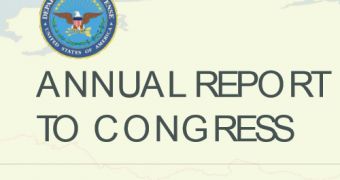On Monday, the Pentagon released its 2013 report on the “military and security developments involving the People’s Republic of China.”
Despite the fact that China has denied any involvement in cyber espionage operations, the US Department of Defense once again appoints the country as being responsible for numerous cyberattacks.
“In 2012, numerous computer systems around the world, including those owned by the U.S. government, continued to be targeted for intrusions, some of which appear to be attributable directly to the Chinese government and military. These intrusions were focused on exfiltrating Information,” the 92-page report reads.
“China is using its computer network exploitation (CNE) capability to support intelligence collection against the U.S. diplomatic, economic, and defense industrial base sectors that support U.S. national defense programs.”
According to the Pentagon, the information targeted by China can help the country enhance its high-tech and defense industries. In addition, it could also help Chinese military planners in determining several key aspects that could be used in the eventuality of a crisis.
Chinese military operations can benefit from cyberwarfare capabilities in three main areas: collection of data and intelligence for cyberattacks, slowing down adversary response time by targeting network-based communications and logistics, and they can also serve as a force multiplier when launching kinetic attacks.
The report also highlights the similarities between China’s and Russia’s agendas.
“Beijing’s agenda is frequently in line with Russia’s efforts to promote more international control over cyber activities. China and Russia continue to promote an Information Security Code of Conduct that would have governments exercise sovereign authority over the flow of information and control of content in cyberspace,” the report says.
The US believes that mechanisms such as international humanitarian law should also apply in cyberspace. However, the Department of Defense notes that although Beijing does not yet agree with the US’s views on this aspect, its “thinking continues to evolve.”

 14 DAY TRIAL //
14 DAY TRIAL //